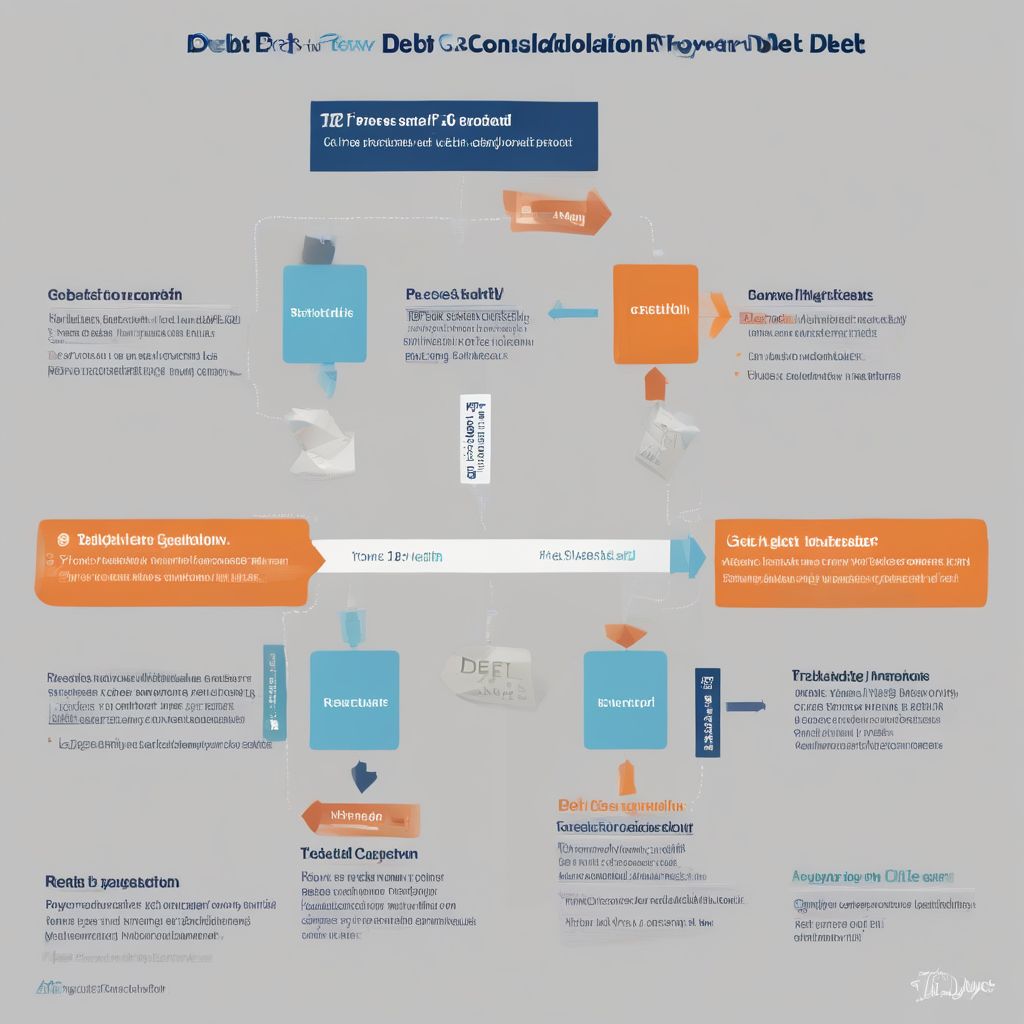Graduating with a degree is a huge accomplishment, but it often comes with a hefty price tag: student loan debt. Navigating repayment options can feel overwhelming, especially when facing multiple loans with different interest rates. That’s where Student Loan Debt Consolidation comes in. This strategy can simplify your repayment process and potentially even save you money.
Understanding Student Loan Debt Consolidation
What is Student Loan Debt Consolidation?
In simple terms, student loan debt consolidation involves taking out a new loan to pay off your existing student loans. This leaves you with a single monthly payment and, ideally, more favorable terms.
h2dstory.com/wp-content/uploads/2024/08/student-loan-consolidation-66b6e5.jpg" alt="Debt Consolidation Illustration" width="1024" height="1024">Debt Consolidation Illustration
Types of Student Loan Debt Consolidation
- Federal Direct Consolidation Loan: This option allows you to combine multiple federal student loans into one, under the Direct Loan program. This can be particularly helpful for managing different loan types, such as subsidized, unsubsidized, or PLUS loans.
- Private Student Loan Consolidation: Offered by banks, credit unions, and other private lenders, these loans may offer lower interest rates than your existing loans, particularly if you have good credit.
Why Consider Student Loan Debt Consolidation?
Benefits of Consolidation
- Simplified Repayment: Instead of juggling multiple due dates and lenders, you’ll only have one payment to manage.
- Potential Interest Savings: Securing a lower interest rate through consolidation can save you money over the life of your loan.
- Extended Repayment Terms: Consolidation may offer longer repayment periods, which can lower your monthly payments. However, keep in mind that this could also increase the total amount you pay in interest over time.
Is Consolidation Right for You?
While student loan debt consolidation can be a beneficial strategy, it’s not a one-size-fits-all solution. Consider these factors:
- Your Credit Score: A higher credit score generally qualifies you for lower interest rates, making consolidation more appealing.
- Existing Loan Terms: Compare your current loan interest rates and repayment terms to consolidation offers to determine if you’ll actually save money.
- Federal Loan Benefits: Consolidating federal loans into a private loan means losing out on federal loan benefits, such as income-driven repayment plans and potential loan forgiveness programs.
Exploring Your Options
If you’re considering student loan debt consolidation, it’s essential to:
- Research Lenders: Compare interest rates, fees, and eligibility requirements from various lenders.
- Read the Fine Print: Carefully review the terms and conditions of any consolidation loan before committing.
- Seek Expert Advice: Consulting with a financial advisor can help you make informed decisions about your student loan debt.
Remember, consolidating your student loans can be a powerful tool for managing your finances, but it’s crucial to weigh the pros and cons carefully to determine if it aligns with your individual financial goals and circumstances.

